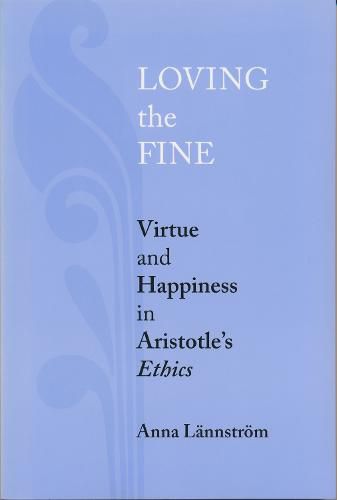Readings Newsletter
Become a Readings Member to make your shopping experience even easier.
Sign in or sign up for free!
You’re not far away from qualifying for FREE standard shipping within Australia
You’ve qualified for FREE standard shipping within Australia
The cart is loading…






Assuming that people want to be happy, can we show that they cannot be happy without being ethical, and that all rational people therefore should be able to see that it is in their own best interest to be ethical? Is it irrational to reject ethics? Aristotle thought so, claims Anna Lannstroem; but, she adds, he also thought that there was no way to prove it to a skeptic or an immoral person.
Lannstroem probes Aristotle’s view that desire is crucial to decision making and to the formation of moral habits, pinpointing the love of the fine as the starting point of any argument for ethics. Those who love the fine can be persuaded that ethics is a crucial part of our happiness. However, as Lannstroem explains, the immoral person does not share this love, and therefore Aristotle denied that any argument would convince the immoral person to become good.
Lannstroem maintains that Aristotle’s Ethics speaks not just to ancient Greeks but to all those who already love the fine, aiming to help them improve their self-understanding and encouraging them to become better human beings. As a consequence, Aristotelian ethics remain viable today.
Written in accessible and lucid prose, Loving the Fine contributes to the renewed interest in Aristotle’s moral philosophy and will be of interest to students of virtue ethics and the history of philosophy.
$9.00 standard shipping within Australia
FREE standard shipping within Australia for orders over $100.00
Express & International shipping calculated at checkout
Assuming that people want to be happy, can we show that they cannot be happy without being ethical, and that all rational people therefore should be able to see that it is in their own best interest to be ethical? Is it irrational to reject ethics? Aristotle thought so, claims Anna Lannstroem; but, she adds, he also thought that there was no way to prove it to a skeptic or an immoral person.
Lannstroem probes Aristotle’s view that desire is crucial to decision making and to the formation of moral habits, pinpointing the love of the fine as the starting point of any argument for ethics. Those who love the fine can be persuaded that ethics is a crucial part of our happiness. However, as Lannstroem explains, the immoral person does not share this love, and therefore Aristotle denied that any argument would convince the immoral person to become good.
Lannstroem maintains that Aristotle’s Ethics speaks not just to ancient Greeks but to all those who already love the fine, aiming to help them improve their self-understanding and encouraging them to become better human beings. As a consequence, Aristotelian ethics remain viable today.
Written in accessible and lucid prose, Loving the Fine contributes to the renewed interest in Aristotle’s moral philosophy and will be of interest to students of virtue ethics and the history of philosophy.